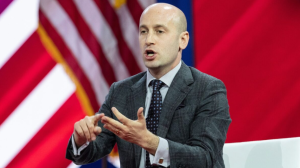The Family Lawsuit That Backfired: How One Question From the Judge Changed Everything
When Cassandra’s parents sued her for $500,000 to pay for her sister’s mortgage, they thought they had crafted the perfect scheme. They never anticipated that one simple question from the judge would expose their lies and destroy their case completely.
The Responsible Daughter Who Paid the Price
Cassandra Wilson had always been the “good daughter”—the one who followed rules, saved money, and built a stable life through hard work and discipline. At 32, she was a successful software engineer living in Seattle, having climbed from junior developer to senior engineer through a decade of dedication and skill development.
But success had come at a personal cost that went far beyond the long hours and technical challenges of her career. Growing up in Portland, Oregon, Cassandra had learned early that her parents, Julia and Donald Wilson, operated under a strict double standard that would shape her entire relationship with her family.
From childhood, Cassandra’s allowance came with budgeting spreadsheets and financial literacy lessons. If she wanted new clothes, she had to save every dollar. Summer jobs started when she was 15, not as character-building exercises, but as financial necessities. When college time arrived, Cassandra secured scholarship funding for 70% of her tuition through academic excellence and worked two part-time jobs to cover the rest.
She lived in the cheapest dormitory available, survived on ramen noodles and determination, and graduated with minimal student loans that she aggressively paid off within three years. Every sacrifice was made with the understanding that financial responsibility was a core family value.
Her younger sister Allison’s experience was dramatically different, as if they had grown up in parallel universes with entirely different parents.
When Allison wanted new clothes, their mother took her shopping without question. When Allison needed money for school trips, their father wrote checks without hesitation. Her allowance came with no strings attached, no budgeting requirements, no lessons about earning and saving.
“Your sister is more sensitive than you are,” their mother would explain when Cassandra pointed out the obvious disparity. “Not everyone can be as naturally responsible as you, Cassie.”
This explanation would become the family’s standard justification for years of increasingly problematic financial enablement.
The Pattern That Never Changed
After college, Cassandra moved to Seattle and built her career methodically, living modestly despite her growing income. She rented a small one-bedroom apartment, drove a reliable used Toyota, and maintained the frugal habits that had gotten her through school.
Every dollar saved was part of a carefully constructed plan: accumulate enough money for a down payment on her own home, the American dream that had motivated her through years of sacrifice.
Meanwhile, Allison’s pattern of financial irresponsibility not only continued but escalated dramatically. She changed her college major four times, extending her education to six years with their parents covering every additional semester. After graduation, she bounced between jobs with alarming frequency, never staying anywhere longer than eight months.
“The work is unfulfilling,” Allison would explain after each resignation. “I had a disagreement with my manager.” “The company culture wasn’t right for me.” Each excuse was met with unconditional parental support.
Their parents paid Allison’s rent, her car payments, and even a $15,000 credit card debt she had accumulated through impulsive shopping and expensive vacations. Every financial crisis was treated as a temporary setback rather than a pattern of poor decision-making.
“Allison is still figuring things out,” their father would say when Cassandra expressed concern. “Not everyone knows their path as clearly as you do.”
The implication was always the same: Cassandra’s success was somehow natural and effortless, while Allison’s struggles deserved sympathy and financial rescue.
Despite the frustrating inequality, Cassandra focused on building her own life. After years of careful planning and disciplined saving, she finally reached her goal: enough money for a down payment on a modest condo in Seattle. It wasn’t luxurious, but it would be hers—a tangible symbol of everything she had worked to achieve.
When she received an invitation to Sunday dinner at her parents’ house in April, Cassandra thought perhaps they wanted to celebrate her home-buying milestone.
She had never been more wrong about anything in her life.
The Dinner That Changed Everything
Cassandra arrived at her parents’ suburban Portland home at exactly 6:00 PM, punctuality being another habit ingrained since childhood. The familiar aroma of her mother’s lasagna filled the air, and the dining room table was set with the good china—signs that this was meant to be a special occasion.
“Cassie, right on time as always,” her mother said, embracing her with unusual warmth.
“Where’s Allison?” Cassandra asked, noticing the table was set for only three people.
“Oh, she couldn’t make it tonight,” her mother replied quickly, her tone carrying a note of forced casualness. “She’s in San Diego with some friends. A last-minute trip.”
The dinner conversation was pleasant but oddly superficial, lacking the usual family updates and questions about work. Cassandra began to sense an undercurrent of nervous energy from both parents, but she attributed it to normal family dynamics.
After they finished the main course, instead of serving dessert, her mother returned to her seat with an expression that Cassandra would later recognize as the look of someone about to deliver life-changing news.
Her father cleared his throat with ceremonial gravity. “Cassie, we have some exciting news to share with you. We’ve helped Allison purchase a house.”
Cassandra felt her first stab of surprise. “Oh, that’s… big news. I didn’t realize she was even looking to buy.”
Her mother laughed with a brightness that felt forced. “She found this absolutely perfect place in the West Hills neighborhood. Three bedrooms, two and a half baths, and the most gorgeous view of the city.”
Cassandra nearly choked on her wine. West Hills was one of Portland’s most exclusive and expensive neighborhoods, where even modest homes routinely sold for over $600,000. “That sounds incredibly expensive,” she managed to say.
“It’s an investment in her future,” her father stated with the tone of someone who had rehearsed this conversation. “A chance for her to build real equity and stability.”
Her parents exchanged a look that Cassandra couldn’t quite interpret, and her mother reached for a folder that had been sitting on the kitchen counter. She slid it across the table with the deliberate motion of someone playing a carefully planned card.
“The thing is, Cassie,” her father continued, his voice taking on a more serious tone, “we took out the mortgage in our names because Allison’s credit and employment history weren’t quite ready for that level of financial commitment.”
Cassandra stared at the folder without touching it, a cold dread beginning to settle in her stomach.
“But we’ve realized that with retirement approaching, we can’t really afford the monthly payments,” her mother said, pushing the folder closer. “We need you to take over the mortgage, sweetheart.”
The room seemed to tilt as Cassandra opened the folder to find complete mortgage documentation for an $800,000 home with a $750,000 loan. The monthly payment was over $4,000—more than many people’s entire monthly income.
“This has to be a joke,” Cassandra said, looking up at their deadly serious faces. “You want me to pay for Allison’s house?”
“You have an excellent job, Cassie,” her father replied, his tone hardening into something approaching demand. “You’ve always been good with money. You have more than enough saved up to handle this responsibility.”
“More than enough? I’ve been saving for years to buy my own place!”
“Family helps family,” her mother said, as if this phrase settled the matter completely.
Cassandra pulled her hands away from the folder as if it were contaminated. “It’s funny how that principle only seems to apply when Allison needs something.”
The Confrontation That Revealed Everything
What followed was a conversation that would forever change Cassandra’s understanding of her place in the family hierarchy. Her father launched into a lecture about family obligations, about how Cassandra’s success created responsibilities to help those less fortunate.
Her mother’s approach was more emotional, with tears and accusations that Cassandra had always been jealous of the “special bond” she shared with Allison.
“Allison has always needed more support,” her mother explained through dramatic sniffles. “She’s more sensitive, more artistic. She can’t be expected to navigate the world with your cold, calculating approach to life.”
The conversation revealed layers of resentment and manipulation that Cassandra had never fully recognized. Her parents weren’t just asking for financial help—they were demanding that she subsidize a lifestyle for Allison that they themselves couldn’t afford.
“If you don’t help your sister,” her father finally said, his voice carrying the weight of an ultimatum, “then you’re not the daughter we raised you to be.”
Cassandra stood up, trembling with a mixture of anger and heartbreak. “Maybe I’m not. Maybe I’m better than that.”
She left without dessert, without goodbyes, and without any intention of ever returning to that dinner table.
For three days, Cassandra ignored the barrage of calls and text messages from her parents. The messages ranged from pleading to angry to manipulative, but they all carried the same underlying theme: she was being selfish and destroying the family.
On the fourth day, there was a knock at her apartment door.
Allison stood there with puffy eyes and the kind of dramatic distress that had always guaranteed parental intervention. “Cassie, please,” she began the moment the door closed behind her. “You have to help me. I love this house so much. I had no idea Mom and Dad were going to ask you to pay for all of it.”
As Allison spoke, Cassandra looked around her own modest apartment—the cramped space she had accepted because every dollar saved brought her closer to homeownership. “You’re not even using your money for anything important anyway,” Allison continued, apparently oblivious to the cruelty of her words.
“You were in on this from the beginning,” Cassandra realized aloud, the pieces falling into place.
“Well, I mean, we talked about it a little,” Allison protested weakly. “Just, you know, maybe you could help out until I get established in my career.”
“You’ve been ‘getting established’ for ten years, Allison. When are you actually going to stand on your own feet?”
The argument that followed exposed years of accumulated resentment and the fundamental difference in their worldviews. Allison genuinely believed she deserved financial support indefinitely, while Cassandra believed in earning what you receive.
That evening, Cassandra finally answered her parents’ calls. “Cassandra,” her father began with ominous formality, “we need to discuss this situation like adults.”
“There is no situation to discuss,” she replied firmly. “I’m not paying for Allison’s house. That’s final.”
“We’ve already made a substantial down payment,” her mother interjected desperately. “We took the money from our retirement fund because we believed you would honor your family obligations.”
The revelation hit Cassandra like a physical blow. “You made a massive financial decision based on money I never offered to give? That’s not my responsibility to fix.”
“You’ll regret this selfishness,” her father threatened before hanging up.
But the threats were just beginning.
The Legal Nightmare That Followed
A week later, Cassandra received a call from her Aunt Eleanor, her mother’s sister, who had always been the family’s voice of reason. “Those absolute fools,” Eleanor sighed. “Did you know they emptied their entire retirement accounts for Allison’s down payment? Nearly $300,000, gone.”
The revelation was staggering. Her parents had just decimated their financial security for retirement, gambling everything on Cassandra’s willingness to bail them out.
Concerned about the escalating situation and her family’s increasingly desperate behavior, Cassandra scheduled a meeting with a financial advisor. “You need to protect yourself legally,” Gabriella Martinez warned after hearing the full story. “Given how determined your parents seem to be, I wouldn’t be surprised if they try something more extreme.”
Her prediction proved frighteningly accurate.
Three days later, a certified letter arrived that would change everything. Cassandra’s hands shook as she opened it to find legal documents that seemed to belong in someone else’s nightmare.
Her parents were suing her for $500,000.
Their legal claim was breathtaking in its audacity: they alleged that Cassandra had verbally agreed years earlier to help with “family expenses” in return for their “investment” in her education. They claimed this constituted a binding contract that she was now violating.
It was a complete fabrication, but there it was in black and white, with a court date scheduled for just six weeks away.
The panic attack that followed was the worst of Cassandra’s life. When she could finally breathe again, she called in sick to work and spent the day researching family law attorneys.
By afternoon, she had secured an emergency consultation with Lawrence Thompson, a family law specialist with thirty years of experience. His initial assessment was both reassuring and terrifying.
“This is quite frankly one of the more absurd lawsuits I’ve seen in three decades of practice,” he said after reviewing the documents. “But absurd doesn’t mean harmless. Your parents have hired a competent attorney, and they’re clearly desperate enough to pursue this to its conclusion.”
The legal discovery process revealed the true depth of her parents’ deception. They had created an elaborate paper trail of falsified evidence, including backdated emails and letters in which Cassandra supposedly acknowledged a debt to them.
“These documents are completely fabricated,” Cassandra told Lawrence, studying printouts of emails she had never written.
“I suspected as much,” he replied grimly. “The metadata doesn’t match, the writing style is inconsistent, and several references are anachronistic. The good news is that this forgery will completely undermine their case. The bad news is that your parents have just committed multiple felonies.”
The Courtroom Drama That Exposed Everything
The day of the first court appearance arrived with all the gravity of a funeral. Cassandra dressed in a conservative navy-blue suit, trying to project the professional competence that had always defined her identity.
Walking into the courtroom and seeing her parents sitting at the opposing counsel table was surreal. These were the people who had taught her to ride a bicycle, helped with homework, and attended every school graduation. Now they were adversaries in a legal battle that could bankrupt her.
Judge Katherine Martinez was a no-nonsense woman in her fifties whose reputation for cutting through legal nonsense was legendary in the local bar association. Her initial questions revealed immediate skepticism about the case.
“Let me understand this correctly,” she said, studying the documents over her reading glasses. “The plaintiffs are suing their daughter for $500,000 based on an alleged verbal agreement made when she was how old?”
“Eighteen, Your Honor,” replied Benjamin Russell, her parents’ attorney. “When she left for college.”
“And this agreement was never reduced to writing?”
“It was a family matter, Your Honor. A matter of trust and understanding.”
Judge Martinez’s expression suggested she found this explanation less than convincing. “I see. And the defense has submitted evidence that the emails supporting this claim are forgeries?”**
“We dispute that characterization, Your Honor,” Benjamin replied smoothly. “There may have been some confusion about dates and formatting, but the substance of the communications is accurate.”
“‘Confusion,’” the judge repeated dryly. “About who wrote the emails and when they were written. That’s an interesting choice of words, Counselor.”
The testimony that followed exposed the full scope of the family’s dysfunction. Cassandra’s father took the stand first, presenting himself as a sacrificing parent who had invested everything in his daughter’s success.
Lawrence’s cross-examination was surgical in its precision. He presented scholarship letters, financial aid documents, and employment records that painted a very different picture.
“These records show that 90% of Miss Wilson’s education was funded through academic scholarships and her own work-study employment,” Lawrence stated. “Your actual financial contribution amounted to approximately $5,000 over four years. Is that correct?”
“Approximately, yes,” her father admitted reluctantly.
“And yet you’re claiming that this $5,000 investment creates a $500,000 obligation?”
“It’s not just about the money,” her father replied, his composure beginning to crack. “It’s about family loyalty and gratitude.”
Her mother’s testimony was more emotional than factual, filled with tears and dramatic declarations about her worry for Allison’s future. Under cross-examination, however, she was forced to admit that they had provided Allison with approximately $375,000 in direct financial support since she turned eighteen, while providing Cassandra with essentially nothing.
The most devastating moment came when her parents called Allison as a surprise witness.
Allison took the stand wearing an expensive dress that had clearly been purchased for the occasion. Her testimony was a masterclass in entitlement disguised as vulnerability.
She tearfully described how much the house meant to her, how it represented her first real chance at stability and success. She painted herself as a victim of circumstances beyond her control, someone who simply needed family support to reach her potential.
During cross-examination, Lawrence was gentle but relentless. “Miss Wilson, if you had to choose between keeping this specific house and healing the relationship with your sister, which would you choose?”**
Allison hesitated, clearly recognizing the trap in the question. “That’s not a fair question to ask.”
“Nevertheless, please answer.”
“I deserve that house,” Allison finally said, her voice hardening with conviction. “Cassie can afford to help me keep it if she wasn’t being so selfish about money.”
The courtroom fell silent as the true nature of Allison’s character was revealed. Even her parents looked uncomfortable with the naked entitlement their daughter had just displayed.
After a full day of testimony that exposed years of family dysfunction, Judge Martinez called for final arguments. When both attorneys had finished their presentations, she consulted her calendar with deliberate ceremony.
“I’ll take this matter under advisement,” she announced. “We’ll reconvene next Friday at 9:00 AM for my ruling.”
The Week That Changed Everything
The seven days waiting for the verdict were the longest of Cassandra’s life. She couldn’t concentrate at work, couldn’t sleep, couldn’t escape the constant anxiety about what the judge might decide.
Friday morning arrived with the weight of destiny. Cassandra met Lawrence at the courthouse thirty minutes early, needing time to compose herself before facing whatever came next.
The courtroom was more crowded than expected. Her parents sat at their table, her father looking confident in a way that made Cassandra’s stomach clench with worry. But on her side of the courtroom, unexpected support had materialized.
Aunt Eleanor and Uncle Philip had driven down from Seattle. Her coworker Heather had taken the morning off to attend. Even her former college roommate had flown in from California. Their presence brought an unexpected lump to Cassandra’s throat—these were the people who truly understood family loyalty.
Judge Martinez entered with the gravitas befitting a moment that would reshape lives. “In the case of Wilson versus Wilson, I have carefully reviewed all testimony and evidence presented to this court.”
She looked directly at Cassandra’s parents with an expression that could have frozen flame. “Mr. and Mrs. Wilson, your claim rests entirely on an alleged verbal agreement that you claim was made between yourselves and your daughter when she was eighteen years old. You have provided no credible evidence that such an agreement ever existed.”
Her father’s confident expression began to waver.
“Furthermore,” Judge Martinez continued, “the emails you submitted as evidence of this supposed agreement have been conclusively proven to be fabrications created after the fact. This is a serious matter that could result in criminal charges for perjury and fraud.”
Her mother began crying silently, finally understanding the magnitude of their legal jeopardy.
“But beyond the legal issues,” the judge said, her voice taking on a tone of moral authority, “I find the underlying premise of your lawsuit deeply disturbing. Parenthood is not a financial investment with expected monetary returns. Children do not owe their parents repayment for fulfilling basic parental obligations.”
She turned to Cassandra with something approaching compassion. “Miss Wilson, the evidence shows that you have been financially independent since college graduation. You have worked hard, lived responsibly, and saved your money through your own efforts. You have no legal or moral obligation to fund a house purchase for your sister, regardless of your parents’ expectations.”**
Looking back at her parents, Judge Martinez delivered the verdict that would end their legal crusade. “This lawsuit is dismissed with prejudice. Furthermore, the plaintiffs will be responsible for paying the defendant’s legal fees in full.”
She paused, removing her glasses with deliberate ceremony. “Before you leave my courtroom today, I want you to remember something. Some damage cannot be undone with apologies alone. Trust, once broken, must be rebuilt brick by brick, choice by choice. I sincerely hope you find a way forward that honors the true meaning of family—which has nothing to do with financial transactions and everything to do with mutual respect and unconditional love.”
With that, she struck her gavel, and the legal nightmare was finally over.
The Aftermath That Revealed True Character
The immediate aftermath of the verdict was chaos. Cassandra’s father stood and shouted at their attorney, demanding to know how such a “simple case” could have been lost. Her mother collapsed in tears, overwhelmed by the realization that they now owed tens of thousands in legal fees on top of their existing financial crisis.
Lawrence ushered Cassandra out through a side door, protecting her from the family drama that was erupting behind them. “It’s over,” he said simply. “You’re free.”
But freedom came with its own complications.
Two weeks later, Cassandra returned to her apartment to find her front door slightly ajar. Inside, drawers had been emptied onto the floor, furniture was overturned, and someone had spray-painted “SELFISH B***H” across her living room wall in red letters.
Nothing valuable had been taken—this wasn’t a robbery. It was a message, a final act of revenge from someone who couldn’t accept the court’s decision.
Cassandra didn’t report the break-in to police, and she didn’t accuse anyone directly. But in her heart, she knew who was responsible.
A month after the verdict, Aunt Eleanor called with news that surprised no one. “Your parents are selling their house. The mortgage on Allison’s place, plus the legal fees from the lawsuit, have pushed them to the edge of bankruptcy.”
“What about Allison’s dream house?” Cassandra asked.
“On the market as of yesterday,” Eleanor replied. “Allison is absolutely furious. She’s been calling it a betrayal, as if she’s the victim in all this.”
The house that had started this entire legal nightmare sold within six weeks, but for significantly less than the purchase price. After paying off the mortgage and covering the legal costs, Cassandra’s parents were left with almost nothing.
They were forced to downsize to a small rental apartment, their retirement dreams shattered by their own poor decisions.
The Reconciliation That Almost Happened
Six months passed in relative peace. Cassandra settled into a new rhythm of life, working with a therapist to process the trauma of being sued by her own parents. She moved forward with her long-delayed plan to purchase her own home, finally closing on a modest two-bedroom condo near a beautiful park.
It wasn’t the luxury house in West Hills that had caused so much family drama, but it was hers—purchased with money she had earned and saved through her own efforts.
One crisp October morning, an email appeared in Cassandra’s inbox that made her heart skip a beat. It was from Allison, containing just four words: “Can we please talk?”
Against her better judgment, Cassandra agreed to meet at a neutral coffee shop downtown.
The woman who walked in looked dramatically different from the entitled person who had testified in court six months earlier. Gone were the designer clothes and expensive accessories. Allison wore simple jeans and a sweater that looked like it came from a discount store.
“Thank you for agreeing to see me,” Allison said, her voice carrying a humility that Cassandra had never heard before. “I owe you an apology that’s bigger than anything I can say in words.”
“What’s changed?” Cassandra asked, not ready to trust this apparent transformation.
“Everything fell apart after the house was sold,” Allison explained. “I had to move in with our cousin Patricia, and she gave me an ultimatum: get professional help or find somewhere else to live.”
Allison described months of therapy that had forced her to confront the reality of her behavior and its consequences. She was working steadily for the first time in her adult life—administrative work at a dental office that paid modestly but provided stability.
She had her own tiny apartment and was learning to live on a budget for the first time in her life.
“I’ve never had to face real consequences before,” she admitted. “Mom and Dad always fixed everything, always found a way to make my problems disappear. When they couldn’t do that anymore, I finally had to grow up.”
The conversation continued for nearly two hours, covering years of resentment, misunderstanding, and missed opportunities for genuine connection. Allison took full responsibility for her actions, including an admission that shocked Cassandra.
“I broke into your apartment,” she said quietly. “I was drunk and angry, and I wanted to hurt you the way I felt like you had hurt me. It was inexcusable.”
As they prepared to leave, Allison handed Cassandra a sealed envelope. “What’s this?”
“The first installment,” Allison explained. “I’m paying you back for the damage to your apartment and anything else I can make right. It’s only $200 right now, but I’ll send more each month until everything is paid off.”
The gesture meant more to Cassandra than any apology could have. It was the first time in Allison’s life that she had taken concrete financial responsibility for her actions.
“I’m not ready to forgive everything,” Cassandra said honestly. “But I’m willing to try building something new between us.”
They agreed to stay in touch through occasional texts and perhaps monthly coffee meetings. It was a small step, but an important one toward rebuilding a relationship that had been damaged by years of dysfunction.
The Parents Who Never Changed
Unfortunately, the same couldn’t be said for Cassandra’s parents. According to family updates from Aunt Eleanor, they remained bitter and unrepentant about the lawsuit and its consequences.
They had moved to a modest apartment in a different neighborhood, their social standing damaged by the public nature of their financial collapse. Julia had been forced to take a part-time job at a retail store—the first employment she’d had in over twenty years.
Donald, once proud of his career in middle management, now worked as a night security guard to supplement their Social Security income.
“They still believe the judge was biased against them,” Eleanor reported during one of their regular phone calls. “They think the whole system conspired to deny them what they deserved.”
Most painfully, they continued to blame Cassandra for their financial ruin, apparently unable to acknowledge that their own decisions had created their circumstances.
“Your mother asked me to tell you that they would consider reconciling if you helped them get back on their feet financially,” Eleanor said during one particularly difficult conversation.
Cassandra’s response was immediate and final. “They can consider whatever they want. I’m done being their backup plan for poor financial decisions.”
The Life That Rose From the Ashes
Two years after the lawsuit ended, Cassandra’s life had transformed in ways she never could have imagined. The legal victory had given her more than just financial protection—it had freed her from a lifetime of family manipulation and emotional blackmail.
Her career flourished as she focused her energy on professional growth rather than family drama. She received a promotion to lead developer and began mentoring younger engineers, finding fulfillment in helping others succeed through their own efforts.
The condo she had purchased became a sanctuary filled with plants, books, and artwork that reflected her personal taste rather than family expectations. For the first time in her life, she was living entirely on her own terms.
She also discovered the joy of chosen family. The friends who had supported her during the legal battle became closer than many blood relatives had ever been. Aunt Eleanor and Uncle Philip became regular presences in her life, providing the kind of unconditional support that healthy family relationships should offer.
Most importantly, Cassandra learned to trust her own judgment about relationships and boundaries. The therapy that had helped her process the trauma of being sued by her parents also helped her recognize patterns of manipulation and entitlement that she would never tolerate again.
“The most valuable thing I learned,” she reflected during a recent conversation with her therapist, “wasn’t about money or legal strategy. It was about defining family on my own terms and recognizing that love without respect isn’t really love at all.”
The Lesson That Changed Everything
When people ask Cassandra about the lawsuit and its aftermath, she always returns to the same fundamental truth: “Standing up for yourself isn’t selfish—it’s necessary. Some people will try to convince you that their poor decisions are your responsibility to fix. Don’t believe them.”
The case became something of a legend in the family law community, used by attorneys as an example of how desperation can drive people to make increasingly poor decisions. Lawrence Thompson still references it in his lectures about family financial abuse and the importance of maintaining clear boundaries.
“What made Cassandra’s case unique,” he often explains, “wasn’t just the audacity of her parents’ demands, but her absolute refusal to be manipulated by guilt or false obligations. She understood that enabling bad behavior isn’t love—it’s enabling.”
The $500,000 lawsuit that was meant to intimidate Cassandra into compliance instead became the catalyst for her complete financial and emotional independence. By forcing her to defend herself in court, her parents had inadvertently given her the legal validation that her boundaries were reasonable and her instincts were correct.
Judge Martinez’s ruling didn’t just dismiss a frivolous lawsuit—it affirmed the principle that adult children don’t owe their parents repayment for basic parenting responsibilities.
“Some damage cannot be undone with apologies alone,” the judge had said, and those words proved prophetic. The relationships that were broken by the lawsuit have never fully healed, but the life that Cassandra built from the wreckage has been more authentic and fulfilling than anything she had experienced before.
Sometimes the worst thing your family can do to you is also the best thing that could happen for your future. Cassandra’s parents thought they were using the legal system to force her compliance. Instead, they gave her the greatest gift possible: absolute freedom from their expectations and manipulation.
The question that ended everything wasn’t particularly complex or dramatic. Judge Martinez had simply asked whether there was any credible evidence of the alleged agreement, and the answer was definitively no.
But that simple question exposed years of lies, manipulation, and financial abuse that might have continued indefinitely if Cassandra hadn’t found the courage to say no to an unreasonable demand.
Today, she owns her own home, manages her own finances, and builds relationships based on mutual respect rather than financial obligation. The responsible daughter who was supposed to sacrifice her dreams for her sister’s house instead created a life that proves the power of standing firm in your truth, even when everyone else is trying to tear you down.
And that truth has never been more valuable than the price she was asked to pay for abandoning it.

Emily Johnson is a critically acclaimed essayist and novelist known for her thought-provoking works centered on feminism, women’s rights, and modern relationships. Born and raised in Portland, Oregon, Emily grew up with a deep love of books, often spending her afternoons at her local library. She went on to study literature and gender studies at UCLA, where she became deeply involved in activism and began publishing essays in campus journals. Her debut essay collection, Voices Unbound, struck a chord with readers nationwide for its fearless exploration of gender dynamics, identity, and the challenges faced by women in contemporary society. Emily later transitioned into fiction, writing novels that balance compelling storytelling with social commentary. Her protagonists are often strong, multidimensional women navigating love, ambition, and the struggles of everyday life, making her a favorite among readers who crave authentic, relatable narratives. Critics praise her ability to merge personal intimacy with universal themes. Off the page, Emily is an advocate for women in publishing, leading workshops that encourage young female writers to embrace their voices. She lives in Seattle with her partner and two rescue cats, where she continues to write, teach, and inspire a new generation of storytellers.









